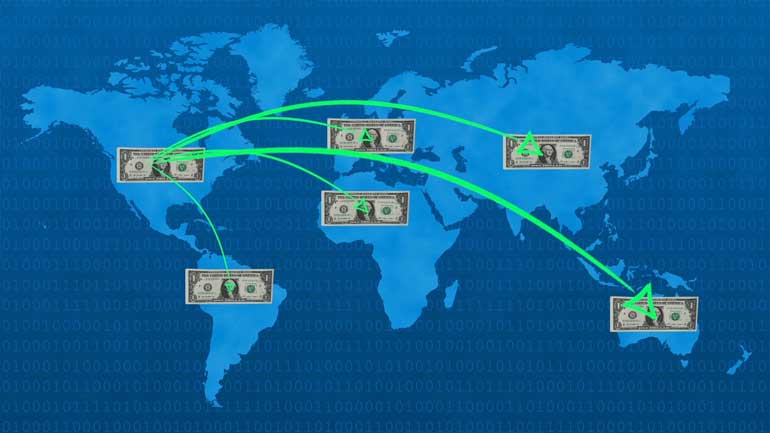ShmoopTube
Where Monty Python meets your 10th grade teacher.
Search Thousands of Shmoop Videos
Personal Finance Videos
Play All
What is bankruptcy? Deadbeats who can't pay their bills declare bankruptcy. Either they borrowed too much money, or the business fell apart. They t...
What's a dividend? At will, the board of directors can pay a dividend on common stock. Usually, that payout is some percentage less than 100 of ear...
How are risk and reward related? Take more risk, expect more reward. A lottery ticket might be worth a billion dollars, but if the odds are one in...
What are margins? Margin refers to the difference between the actual value of stock owned and the amount the investor borrows from their broker. In...
What does it mean to "go public?" An IPO raises cash in the form of equity, usually, for investors. When public, a company exists under SEC dominio...
What is equity? It's ownership. A stock, not a bond. A common shareholder, not a debt obligator. When you own one share in a million-share outstand...
What is common stock? Ownership. Common shareholders own a pro rata slice of the pie. They elect the board of directors by vote. Some companies hav...
What is liquidity? Think: water. It's liquid. It can be squeezed into little, tiny spaces and infused into large spaces. A defining trait of liquid...
What is a corporation? Corporations are legal bodies. Bodies exist in various forms: LLC (Limited Liability Corporation), S-Corporation (now with p...
What is net worth? You own $100,000,000 worth of Coke stock. That's the good news. Unfortunately, you also have $90,000,000 in debt. Your net worth...
What is the Efficient Markets Theory? The Efficient Markets Theory says that stocks trade at their fair value all of the time, assuming all informa...
What's the SEC? Easy. Seals Eating Candy. Or maybe Silly Elephants Canoodling? We can never remember. Guess it's time to watch this video and refre...
What is a strike price? Strike prices are used in conjunction with options. Calls and puts give investors the right to buy or sell stocks at predetermined prices called strike prices. If the investor owns a call option, they can buy the stock at the strike price; with a put option, they can sell the stock at the strike price.
What rights does a public stockholder have? Common shareholders elect the board of directors. They vote. They have the right to quarterly financial disclosures in GAAP. 10Qs, 10Ks, annual reports... audited... are all obligations of the company.
What is the difference between stocks and bonds? Stocks are ownership. They control the election of the board of directors, who hires the CEO, who controls everything. Bonds are just debt, or obligations the company owes, payable in cash, with interest tacked on.
What is the difference between federal and state taxes? Federal taxes: the whole country. Taxes for national defense, interstate roadways, national parks, etc. State taxes: local. Think: smaller roads, schools, local parks, etc. And gas taxes lean both ways.
What is par value? The notional value of a stock or bond before an offering takes place. When a company is started, founders come up with a par value for their shares, usually fractions of a penny. With bonds, par value is normally $1,000, comprising one unit of a bond offering.
What do you need to retire? Retirement - think: 401k, pension fund, IRA, roth IRA, etc. All of these savings socked away while you worked hard are tax-deferred. Ordinary income tax gets applied when you take the money out and actually use it.
Who invests in stocks? 401k plans, pension funds, institutional investors, banks, traders, clients of Schwab, Fidelity, and Franklin. Joe Blow buys stocks. It's likely you own stocks. They are the retirement investment vehicle of the masses.
What is the "time value" of money? A dollar today is worth more than a dollar tomorrow. You can always invest your cash and earn a return.
What is the difference between Normal, Inverse/Inverted, and Flat Yield curves and what do they tell us? Normal yield curves represent long-term interest rates being more favorable than short-term rates. Inverted curves represent the opposite, that short-term rates are more favorable. When this happens, usually something pretty drastic is happening in the market like a crash. If the yield curve is flat, rates are about the same. So, this flat period happens between normal and inverted, and is kind of a warning that a recession may be on the horizon.
What are the types of income tax? Federal income tax. State income tax. Real estate tax. Value Added Tax (VAT). Some tax is progressive, some tax is regressive. The commonality: they're all bad.
What is the difference between common and preferred shares? Common stock is at the bottom. It comes at the very end, when a company is sold, in the priority stack. It sits behind bank debt, the IRS, preferred stock, and pretty much everything else. The big advantage of common stock? It is the proletariat of investing: common stock shareholders elect the board of directors, who then are responsible for managing the company from 37,000 feet.
What is amortization? Amortization tracks the decline in value of a contract or service, usually paid for in advance. You received $10,000 in advance to water Ms. Maple's lawn for 10 months. She amortizes your watering to the tune of a decline in value of that contract of $1,000 as each month goes by.
How do you become incorporated? Go to Legal Zoom. Pay $150, file with the state of Delaware or whoever each year. Pay another $150. Most file as LLCs when they are small, so the costs are low.
What is debt? IOU. That's debt. You borrowed money. You owe a principal to be paid back n years later. Plus interest. Or the rental price per year of that money you borrowed, and promised to pay back. If you don't, usually those who loaned you the money then take possession or ownership of your company.
What are shares outstanding? The total size of the pie. All of the shares outstanding comprise the total votes and value of a given company. If XYZ.com has a million shares outstanding, and its stock trades for $12 a share, the marketplace is saying it is worth $12M.
Why do taxes exist? Without taxes, Uncle Sam wouldn't be able to boss us around via the IRS, which uses taxpayer money to run the government. Those taxes happen at a local level as well, in the form of real estate taxes, state income taxes, and taxes on local sales, cleverly called sales tax.
What is an income statement? Income statements are important financial documents that all companies keep to track profitability. It shows figures that relate to revenues and expenses to show the company’s, well... income... for a period of time (quarterly, annually).
What are government bonds? Uncle Sam needs dough. He sells bonds in the form of T-Bills, T-Notes, Treasury paper of all flavors. His credo? The credit of those bonds is backed by his ability to tax his hard-working citizens.
What is the price-to-earnings ratio? It's the price of the stock divided by its earnings. Stock price: $14; earnings: $1. The P-E ratio then is 14.
What are Commodities? Commodities are primarily defined as everyday resources consumed by most people in industrialized societies that are derived from mining, drilling or agriculture, such as silver, oil and coffee or coffee. However, the term `commodity’ has since been extended to include ubiquitous services, such as electricity and WiFi.







































